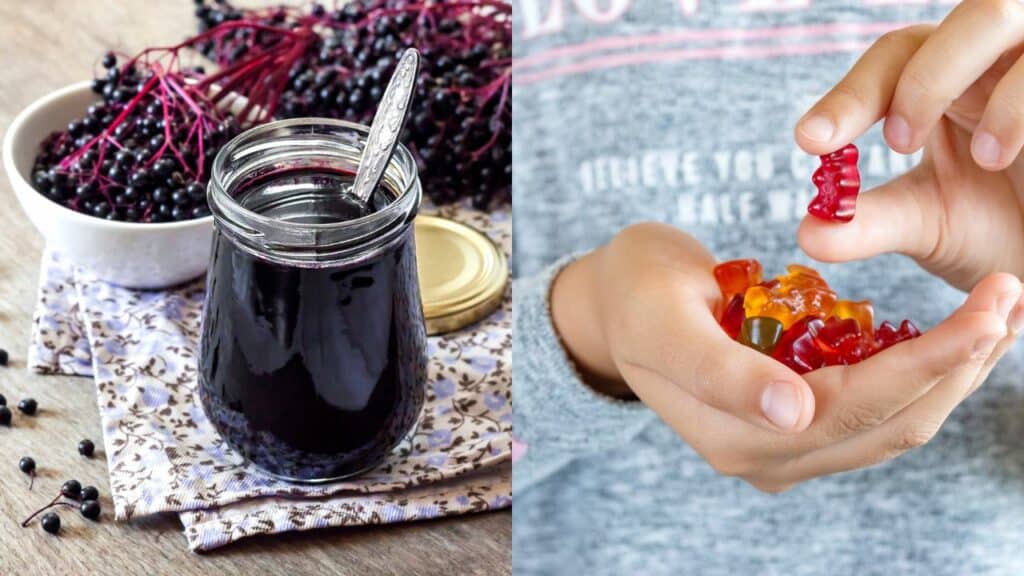Naturally high in vitamins antioxidants and other beneficial compounds and able to grow in all kinds of climates, elderberries are ideal for a wide range of supplements, meaning you can find them in almost all health stores.
We’ve already written on the powerful health benefits of elderberry before and there’s no doubt that elderberry is a superfood that’s packed with antioxidants and vitamins,
But when it comes to implementing them into your daily routine, another question pops up, elderberry syrups vs gummies – which one should I choose?
In summary, elderberry gummies are great for kids as they look (and taste) like candy, but elderberry syrups are often less processed and lend themselves to fancy drinks.
But there’s more to this which we’ve discussed below.
So, if you’re struggling to decide how best to get your elderberry on or want to learn more about the pros and cons of different forms of supplements, stay tuned for this battle of elderberry syrup vs gummies!
Table of Contents
The History of Elderberry

The common black elderberry tree (or Sambucus nigra for you nerds) is able to grow all over the Northern Hemisphere and civilizations all over the world have been using it for centuries.
Ancient Greeks like Hippocrates raved about the medicinal benefits of elderberry gummies and Native Americans used them to treat a whole host of ailments.
Being as elderberries were getting 5-star reviews centuries before Whole Foods became a thing, it’s easy to see why this tasty, easy-growing superfood became super-popular.
Nowadays, you’re almost guaranteed to find elderberry supplements at any big box store or health food shop, but all this competition encourages supplement manufacturers to work harder for our cash, so hooray for the average consumer!
The range of elderberry supplements out there may seem intimidating but narrowing down your search to just one type of supplement – such as elderberry gummies – is a massive help.
Capsules are so last year and try as I might, I still don’t get the appeal of tinctures, so let’s talk about the tastiest two – elderberry syrup vs gummies!
Pros & Cons of Elderberry Gummies vs Syrups
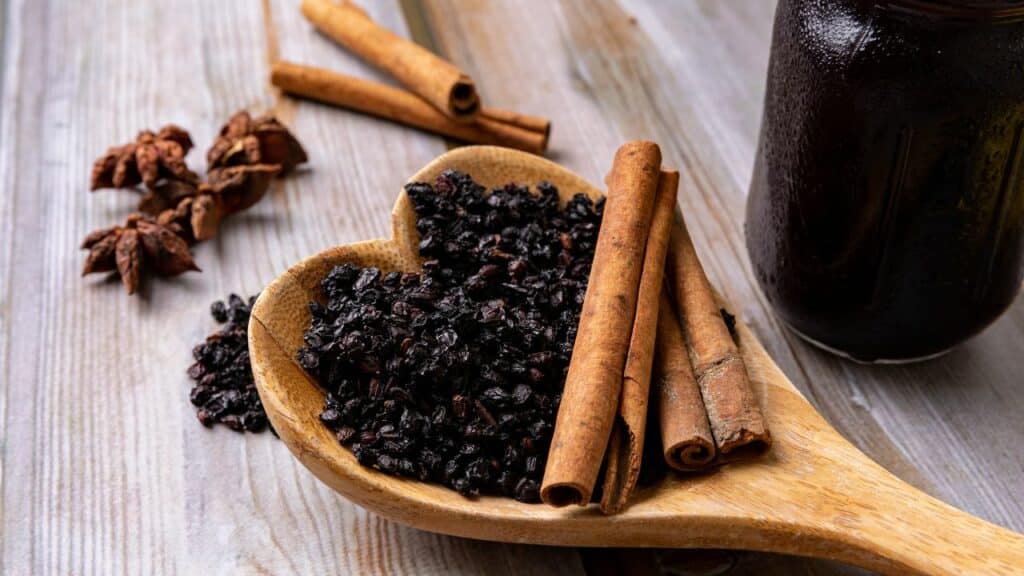
As you may already know, elderberries need to be cooked before they are safe to eat which makes them great for processing into different forms like syrups and gummies.
In their purest forms, elderberry syrup is made from elderberries and sugar, while elderberry gummies are made from elderberries, sugar, and gelatine.
If you’re looking for the healthiest way to take elderberries, you should buy or pick them fresh, but these sweet supplements are an easier – and tastier – way of getting your elderberry fix.
Because these types of supplements are rather similar in terms of chemical makeup, let’s discuss the pros and cons to help you decide which side of the elderberry syrup vs gummies fight you fall on.
Elderberry Gummies Benefits
Available in a wide range of fun shapes, these chewy supplements are made with elderberries and (depending on the brand) taste just like candy!
Pros
- Easy to eat compared to pills and tinctures – just chew and enjoy
- Easy to get your kids to eat them – they look like candy after all
- Compact and easy to transport – pop some in your lunchbox for a mid-day pick-me-up
Cons
- Can be very high in sugar – as with candies, some brands are really high in sugar
- Can be low in elderberry content – some brands use a lot of filler ingredients
- Can be expensive when you look at the price per dose – see our price comparison section
Elderberry Syrups Benefits
One of the simplest ways to enjoy elderberry, these syrups have been around for ages and often feature added ingredients like zinc for improved health benefits.
Pros
- High in nutrients – minimal processing means more natural compounds are retained
- Easy to make – You can make your own syrup with just fresh fruit and sugar
- Can be mixed into fancy drinks – Try elderberry fizz with club soda and thank me later
Cons
- Can be very high in sugar – as elderberries are naturally tart, syrups may contain LOTS of sugar
- Hard to transport – sticky liquids are best left in secure bottles, not your handbag
- Can cause stomach issues – with naturally high fiber, elderberry may make your stomach act up
Elderberry Syrup vs Gummies: Which Is Better?
In short, while elderberry gummies and syrups are often guilty of the same things (lots of sugar, lots of filler content), the gummies have more convenience while the syrups are generally purer.
Plus, who can say no to a fruit gummy that makes you healthier? It’s like if someone found a way to make donuts that caused you to lose weight!
Regardless of who you’re rooting for in the elderberry syrup vs gummies fight, not all supplements are created equal, and you need to be careful you’re not shelling out top dollar for a bum deal.
With that in mind, we made a shortlist of the best elderberry gummies and syrups with economy and premium options to cover all our bases:
Best Elderberry Gummies: Our Top Picks
Whether you love to splurge on premium products or hunt for a bargain at every opportunity, everyone wants good value for money.
In order to give you a good selection of elderberry gummies, we’ve chosen our picks from the top and bottom of the available price range, so you can find the best elderberry supplement whatever your budget.
NOTE: All supplements listed are suitable for vegetarians.
1. Nature’s Nutrition Elderberry Gummies for Immune Support – Best Overall
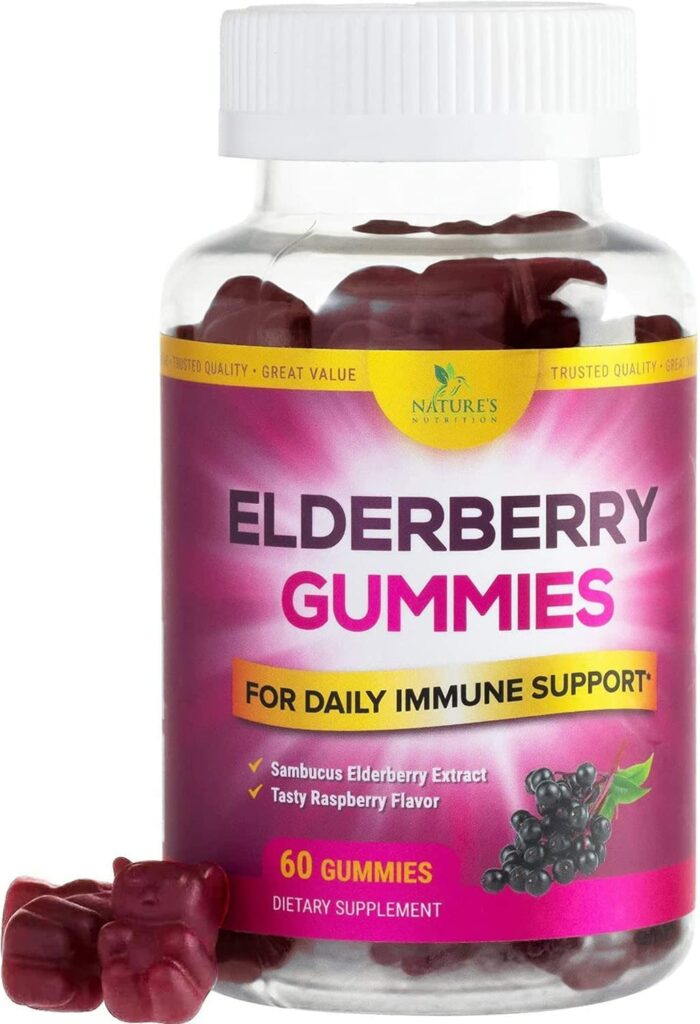
At under $10 for a bottle of 60 gummies (or $0.30 per recommended serving size), these gummies have a mid-range price point and pack 120mg of elderberry extract in each serving.
While they don’t have additional health-boosting ingredients (such as vitamin C) the high elderberry content means that you’ll get plenty of elderberry’s beneficial effects with every gummy.
2. Nature’s Way Sambucus Elderberry Gummies – Best for Adults
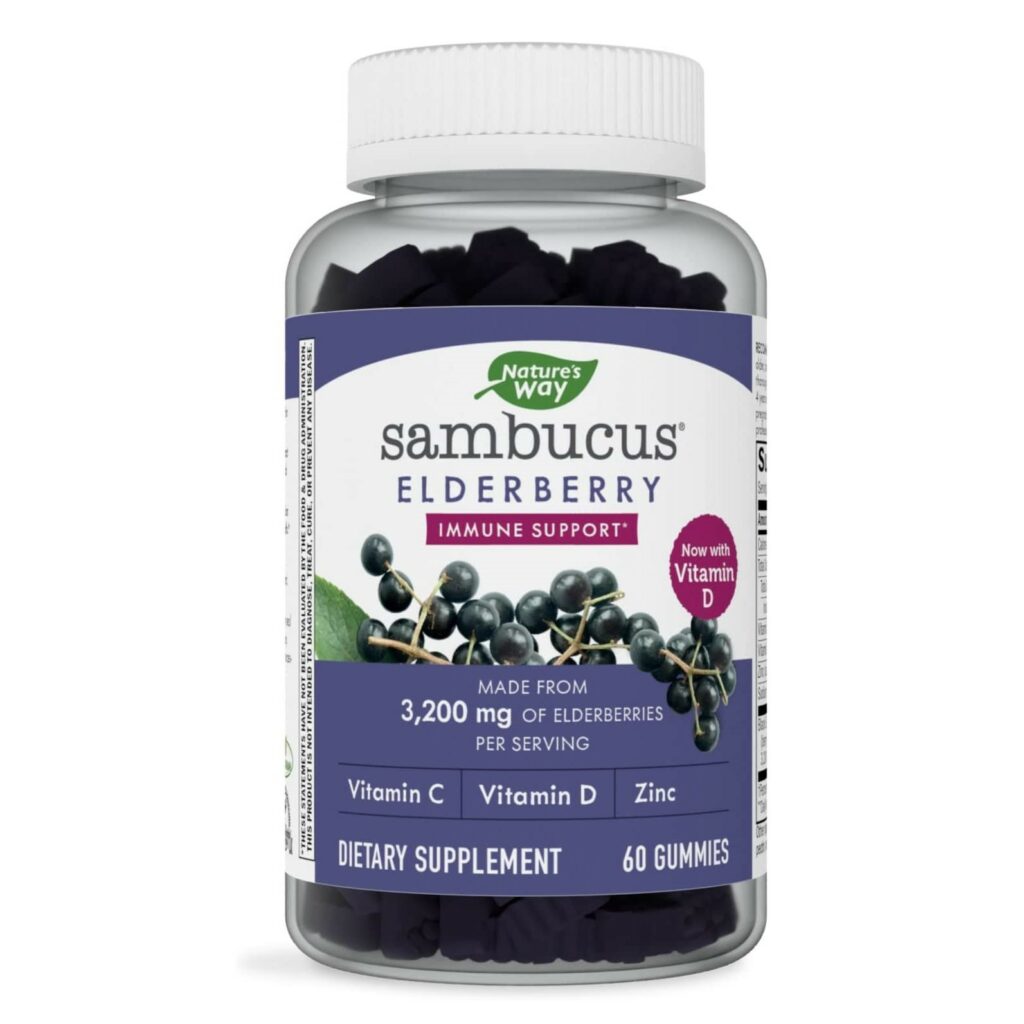
This premium, organic gummies are gelatin-free and have plenty of elderberry extract in each gummy and a real fruit taste, making them more like healthy fruit chews than candy.
3. LifeCentric Health Sambucus Elderberry Gummies – Best for Kids

With added vitamin C, propolis, and echinacea, these elderberry gummies are billed as an all-around immunity booster with 200mg of elderberry extract per pack.
However, we were able to find a bottle of 100 gummies, so these are an easy, tasty, and affordable way to boost your immune system, and your kids are sure to love the sweet raspberry flavor.
Best Elderberry Syrup Brands: Our Top Picks
If you are looking for a purer form of elderberry and don’t mind drinking it, then we’ve picked the top brands for you.
1. Gaia Herbs Black Elderberry Syrup
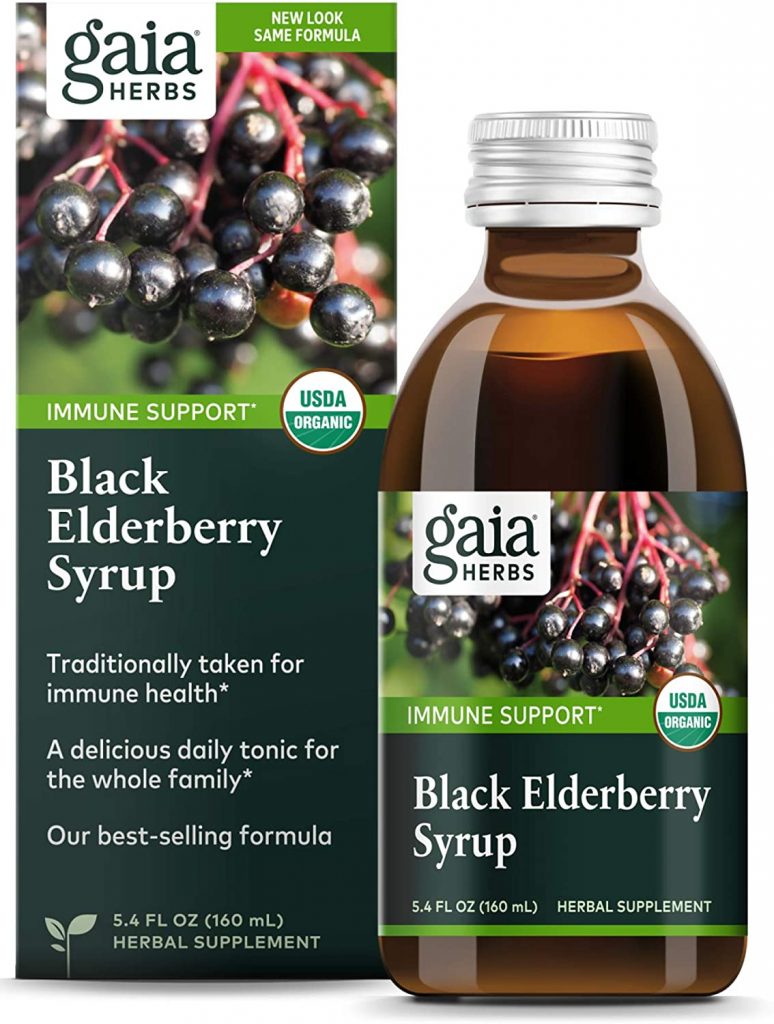
Organic, simple, and natural, the Gaia Herbs’ syrup only has four ingredients – black elderberry, acerola fruit, cane sugar, and lemon juice gaia – making it one of the best ways to get straight-up elderberry in your daily routine. However, all this nature and purity comes at a price – this syrup sells for approximately $0.98 per serving.
2. Nature’s Way Sambucus Elderberry Syrup
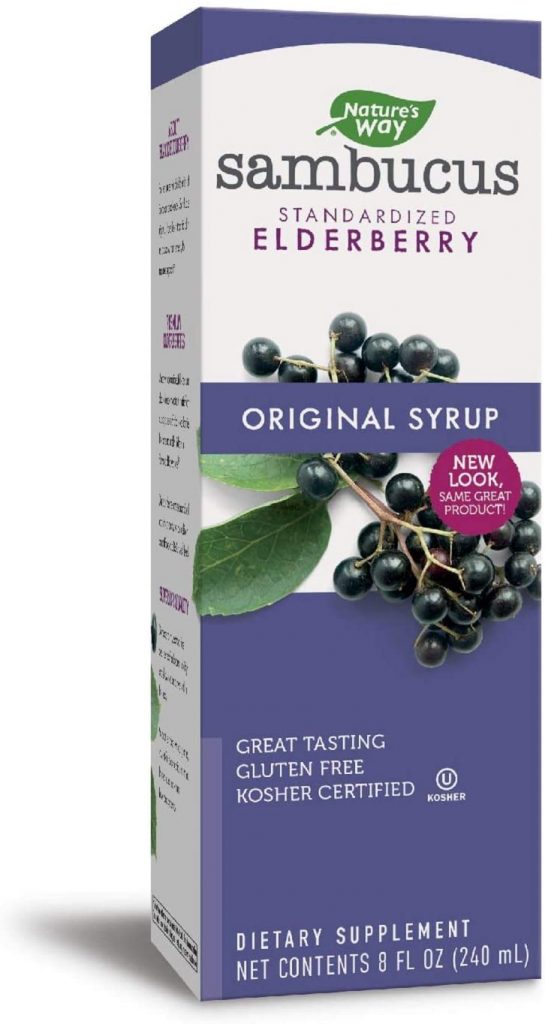
Packed full of immunity-boosting stuff, this is one of the best elderberry syrup brands. It has 100mg of elderberry per serving, and is derived from handpicked elderberries using “a gentle, solvent-free extraction method”.
While I’m not quite sure what that means, this syrup is more affordable but has fewer organic guarantees, as it is sweetened with fructose – a refined sugar.
So, whichever side you’re rooting for in the fight of elderberry syrup vs gummies, you’ve got a couple of options to choose from, whatever your budget. While you can’t beat the ease of grabbing a gummy or two, the syrups offer more options for taking them and maybe more natural, if you’re looking for a purer elderberry supplement.
Good Elderberry Ingredients to Look For
They say ‘You are what you eat’ so it’s important that your supplements are made of the right stuff to give you the health benefits you’re looking for.
With this in mind, we made sure that all the supplements we’ve recommended contain quality ingredients, like:
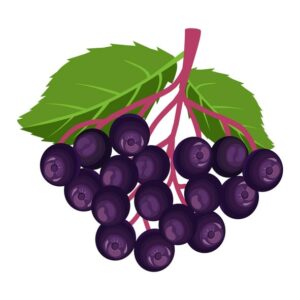
Elderberry
I know it seems obvious, but we focussed on supplements that contained plenty of elderberry extract so you can enjoy the benefits of elderberry, not just filler.
While our recommended supplements may contain elderberry from concentrated or fresh sources, you’ll be able to enjoy all the benefits of real elderberries by taking these elderberry gummies and syrups.
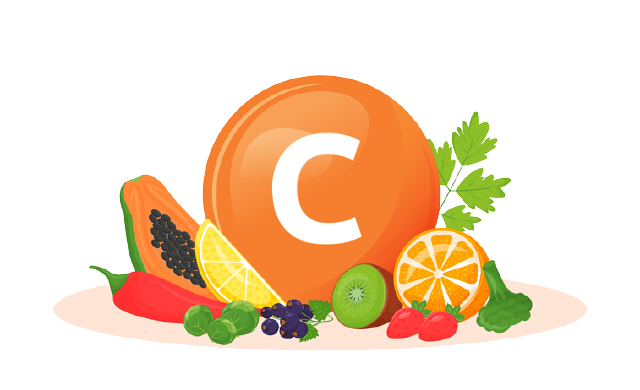
Vitamin C
Much like elderberry, vitamin C has antioxidant and immune-boosting effects, making it the natural accompaniment to elderberries in immune support supplements.
Vitamin C can be found in a wide variety of fruit and vegetables, though its processed form is often called ‘ascorbic acid’ so keep an eye out for this wonder chemical if you’re after a stronger immune system.

Zinc
Zinc supplements have been proven to aid in immune function, as well as promote blood sugar control, meaning that this metallic compound may help you manage diabetes and the flu.
When combined with elderberry and vitamin C, you have yourself a triple threat to any cold germs that think they can move into your neighborhood!
If you can find an elderberry supplement with these ingredients at a good price point, then shop away, but don’t overlook supplements that are just elderberry.
Because this superfood has beneficial properties oozing out of every pore, natural supplements don’t get a whole lot better than this purple powerhouse.
Frequently Asked Questions
Are elderberry gummies good for you?
Absolutely! Elderberry gummies are packed with antioxidants and vitamins that can boost your immune system. They may help tame inflammation, lessen stress, and even help protect your heart.
Are elderberry gummies safe for toddlers?
Yes, kids as young as 2-3 years can safely consume elderberry gummies specifically made for them.
Conclusion
So, whether you’re interested in trying the best elderberry gummies, just looking for a recommendation, or a serious syrup fan, I like to think I’ve taught you something new.
If you disagree with our pick or want us to include different products, why not get in touch and leave a comment?
We love to hear different perspectives and your own tips on staying healthy with supplements, so feel free to write us a line anytime.
